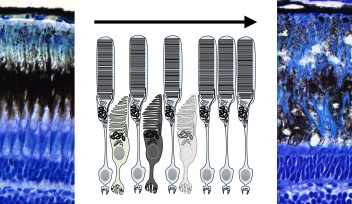Jeff Wickens awarded HFSP Grant

On March 28, 2019 the Human Frontier Science Program (HFSP) announced that a team led by Prof. Jeff Wickens, head of the Neurobiology Research Unit at Okinawa Institute of Science and Technology Graduate University (OIST), has been awarded a highly competitive three-year Program Grant. The team includes researchers from the United States, Israel and Japan who will use the one million USD over the next three years to study acetylcholine and dopamine, brain chemicals important in memory and learning.

“We will be visualizing these chemicals interacting with each other in the brains of mice as they perform tasks,” Wickens said. “We will use new sensors produced by genetically modifying the nerve cells that allow us to observe the chemicals as they swirl through the networks. These chemicals are involved in human disorders like Parkinson’s disease, but our current understanding is limited because we have not been able to visualize them together in live brains.”
To Wickens, the grant is more than funding, it is fostering a new line of research through a unique collaboration. The team of three all bring in different expertise for the experiments. Dr. Lin Tian of University of California, Davis, is designing and creating the new sensors, and Dr. Joshua Goldberg of The Hebrew University of Jerusalem is developing a mathematical model based on his measurements of cell firing activity, which helps predict dynamic patterns when the chemicals interact. Wickens will be developing behavioral tasks, together with OIST postdoctoral researcher Julie Chouinard who worked on the grant, and visualizing the chemical patterns occurring in the brain.
A unique component of the research is the use of virtual reality to control what the mice experience. Virtual reality allows changes to the environment at the click of a button, without disturbing the animal.
“People have used virtual reality before, but to study navigation,” Wickens said. “We want to look at the motivational aspects of learning. We will be changing the way it is used, by programming it for our tasks, and comparing with behavior in a more natural environment.”
HFSP grants fund research in life sciences. The program is based in France and supported by 13 countries and the European Union. This year there were over 800 preliminary proposals that were narrowed to 86 proposals that then submitted a full proposal for the grant, of which 25 were fully funded.
Specialty
Research Unit
For press enquiries:
Press Inquiry Form















